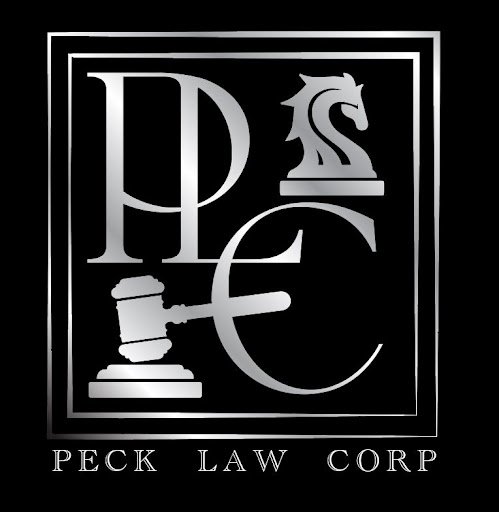Top 5 Nursing Home Abuse Cases in California That Changed State Laws
Exploring Landmark Cases of Nursing Home Abuse that Led to Legislative Reform in California
California has experienced a series of high‑profile nursing home abuse cases that not only exposed harrowing mistreatment but also prompted significant legal reforms. Below are five landmark nursing home abuse cases—each representing real, headline‑making tragedies—and how they shaped cases of nursing home abuse into catalysts for improved protections.
1. Eskaton FountainWood – Misuse of Ativan (FountainWood Verdict)
Key facts
Barbara Lovenstein, a 77‑year‑old dementia patient at Eskaton FountainWood in Sacramento, was administered the emergency‑only sedative Ativan daily against her doctor’s orders. She later choked, developed aspiration pneumonia, and died.
Type of abuse
Chemical restraint, medical neglect.
Legal outcome
A Sacramento jury awarded the family a record $42.5 million verdict, one of the largest ever against an assisted living facility.
Policy impact
This landmark nursing home abuse case raised awareness of over‑medication practices, pushed regulators to scrutinize staffing levels, and influenced broader discussions on banning inappropriate chemical restraints.
2. Mariner Health Care – Statewide Poor-Care Settlement (2024)
Key facts
In March 2024, Mariner Health Care agreed to a $15.5 million settlement over poor quality of care across facilities in Los Angeles, Alameda, Marin, and Santa Cruz counties.
Type of abuse
Neglect and general failure to meet care standards.
Legal outcome
Financial settlement of $15.5 million that also mandated systemic oversight improvements.
Policy impact
Encouraged better enforcement of care standards statewide and demonstrated how cases of nursing home abuse could drive institutional reform through settlement terms directing funds toward oversight and state cost reimbursement.
3. Country Villa Wilshire Healthcare Center – “Betsy” Case (2020)
Key facts
“Betsy,” an 84-year-old patient recovering from hip surgery, suffered extreme neglect at Country Villa Wilshire Healthcare Center in Los Angeles. Over the course of her stay, inspectors documented more than 130 violations, including inaccessible call lights, an unplugged bedside phone, and repeated safety hazards. She endured ten separate falls, resulting in fractures and further loss of mobility.
Type of abuse
Neglect leading to physical injury.
Legal outcome
In 2024, a jury awarded Betsy $2.34 million in damages, sending a strong message about the cost of failing to meet basic care standards.
Policy impact
This nursing home abuse case reinforced the legal consequences of neglect, validated families’ rights to pursue full compensation, and motivated facilities to implement and maintain safety protocols—especially functional call systems and fall-prevention measures.
4. Sonoma Developmental Center (1990s–2000s)
Key facts
For decades, residents—many with developmental disabilities—were subjected to severe abuse at the Sonoma Developmental Center. Reports described abusive “beat-down parties,” sexual assaults by staff, unexplained deaths, and preventable injuries, including a swab left in a resident’s mouth that punctured the esophagus.
Type of abuse
Physical abuse, sexual abuse, neglect, institutional violence.
Legal outcome
In August 2001, California passed a law requiring all developmental centers to immediately report resident deaths and serious injuries of unknown origin to law enforcement. State health inspectors issued numerous citations totaling over $142,800, and the facility ultimately lost Medicaid certification.
Policy impact
This nursing home abuse case heightened statewide reporting requirements, strengthened penalties, and led to stricter oversight of developmental and long-term care centers.
5. Shlomo Rechnitz / Brius Healthcare – Chronic Systemic Violations
Key facts
Owner Shlomo Rechnitz’s chain (Brius Healthcare) was subject to repeated allegations—including patient suicides, unsafe conditions, and serious deficiencies. Between 2013 and 2016, over 370 serious state and federal violations were documented across his facilities.
Type of abuse
Systemic neglect and financial exploitation.
Legal outcome
Licenses denied for multiple facilities; investigations and regulatory penalties ensued.
Policy impact
Highlighted dangers of financial conflicts and lack of oversight, contributing to distrust of for‑profit chains and strengthening regulatory frameworks.
Common Patterns & Lessons Learned from These Cases
Examining these top nursing home abuse cases reveals recurring themes:
• Understaffing and resource constraints often lead to neglect or over‑medication (Eskaton, Mariner)
• Systemic failures and weak oversight enable prolonged abuse cycles (Brius Healthcare, Sonoma)
• Chemical restraint and misuse of pharmaceuticals pose serious health risks (Eskaton)
• Ignoring resident complaints or whistleblower warnings is alarmingly common (Sonoma)
• Financial motivations overshadow care standards in some for‑profit chains (Brius, Mariner)
Lessons learned include the critical importance of:
• Reporting concerns to California’s Department of Public Health or the Attorney General’s Bureau of Medi‑Cal Fraud & Elder Abuse (BMFEA).
• Understanding resident rights under Title 22 and elder abuse laws—residents are entitled to dignity, proper care, and protections; staff have a duty to report abuse, failure of which may be a misdemeanor.
• Pursuing justice via lawsuit or settlement—including wrongful death, emotional distress, and abuse claims that can yield significant compensation as seen above.
How Peck Law Corporation Can Help
At Peck Law Corporation in Simi Valley, our experienced elder abuse and nursing home abuse attorneys stand ready to assist families hurt by incidents like those outlined above. We offer:
• Comprehensive case reviews to assess abuse, neglect, or wrongful death
• Strategic collection of evidence—medical records, staff logs, incident reports
• Legal representation in negotiations or trials seeking maximum compensation
• Guidance through complaint filing and advocacy with regulatory bodies
Our deep understanding of cases of nursing home abuse ensures that facilities are held accountable—serving both justice and systemic reform.
Take Action Today to Protect Your Loved Ones
If you suspect a loved one has suffered abuse or neglect in a nursing home or care facility—or if you've faced misleading practices or evidence concealment—contact Peck Law Corporation today. With deep expertise and compassionate advocacy, we are ready to stand by your family, hold negligent facilities to account, and pursue the justice and safe care your loved one deserves.
FAQs
-
If you suspect abuse, report it immediately to the California Department of Public Health or local law enforcement. Document any signs of harm, unsafe conditions, or staff misconduct. Contacting an experienced nursing home abuse attorney can also help ensure a proper investigation and legal action.
-
An experienced attorney understands how to gather evidence, navigate California’s elder abuse laws, and hold negligent facilities accountable. They can negotiate settlements, represent you in court, and push for reforms to prevent future cases of nursing home abuse. Legal representation also increases your chances of securing maximum compensation.
-
Yes. California has seen several nursing home abuse cases with multi-million-dollar verdicts and settlements, especially when there is clear evidence of gross neglect or intentional harm. These awards often cover medical expenses, pain and suffering, and sometimes punitive damages to deter future misconduct.




